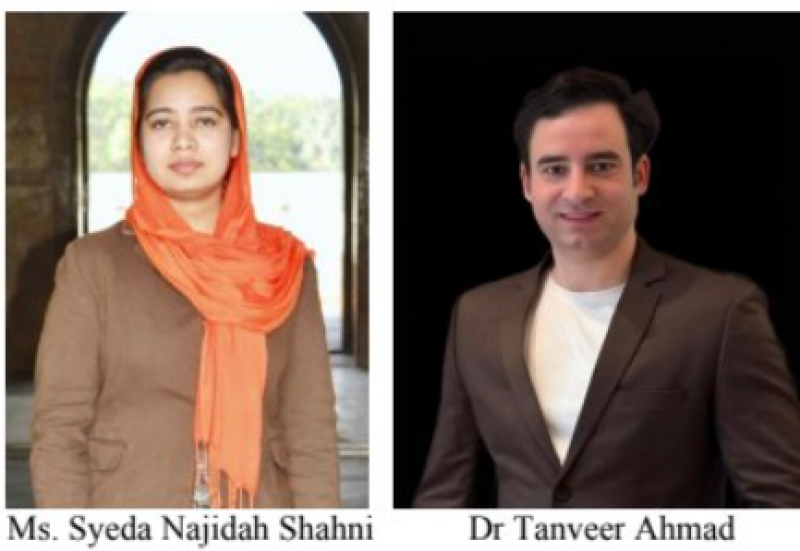A team of researchers at Multidisciplinary Centre for Advanced Research & Studies (MCARS), Jamia Millia Islamia, has developed a novel diagnostic method using CRISPR-Cas12a technology to detect EGFR gene mutations in cell-free DNA (cfDNA) for the early diagnosis of Non-Small Cell Lung Cancer (NSCLC). This cutting-edge technology has the potential to revolutionize cancer diagnostics, offering a faster, more accessible, and accurate method for mutation detection, which is unprecedented. The patent for this EGFR detection system has been filed, marking a significant step toward bringing this innovative technology to clinical application (Patent application number; 202511001741).
This innovative approach allows for attomole-level sensitivity, capable of detecting minute quantities of cfDNA, even with low-abundance mutations. Operating at a mild temperature of 37°C, the system delivers accurate results in less than an hour, making it ideal for real-time clinical applications where rapid diagnostic turnaround is crucial. Integrating a lateral flow assay (LFA) with Cas12a enables single-copy sensitivity for mutation detection, making it ideal for point-of- care diagnostics. In a clinical setting with 57 NSCLC patient samples, the system identified EGFR mutations with high sensitivity and specificity, matching traditional PCR methods while being faster and simpler.
The study was recently published in the peer reviewed journal (Sensing and Bio-Sensing Research) and is available online.
In addition to EGFR mutation detection, the team has also developed a diagnostic tool using a dual-enzyme CRISPR-Cas system for detecting Hepatitis B Virus (HBV) and Hepatitis C Virus (HCV). This tool utilizes CRISPR-Cas12 for HBV detection and CRISPR-Cas13 for HCV detection, coupled with LFA for simultaneous pathogen detection. The dual-enzyme approach significantly improves the detection sensitivity, achieving high specificity without cross-reactivity with other viral targets. This development enhances the diagnostic potential for HBV and HCV, two major public health concerns, especially in regions like India and south east Asia.
The research team, led by Dr Tanveer Ahmad and PhD scholar Ms. Syeda Najidah Shahni, has made significant strides in the field of CRISPR diagnostics, contributing to both cancer and viral disease detection. The potential for EGFR mutation detection in NSCLC could lead to more personalized treatment options, while the dual pathogen detection system addresses the pressing need for efficient and rapid diagnostics for HBV and HCV.
The study was conducted with the invaluable guidance of Dr. Amit Sharma, Dr. Jawed Iqbal, and Dr. Md. Iqbal Azmi. All the authors received enthusiastic support and encouragement from Professor Mohammad Husain, Hony. Director of MCARS, JMI.


